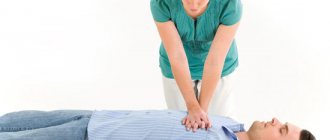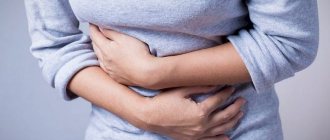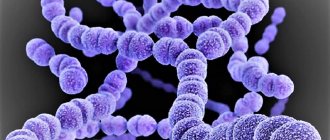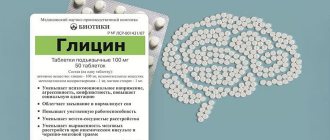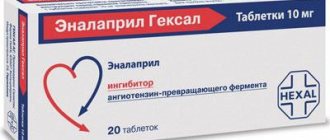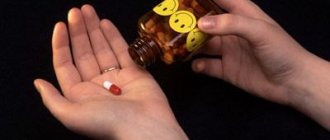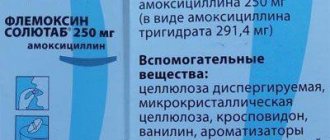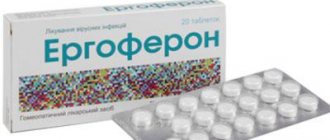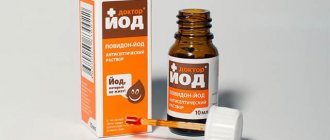After the death of a drug addict, it is quite difficult to determine whether the overdose was a fatal accident or a deliberate step. Addiction to drugs leads a person to a “social dead end”: the breakdown of a family or the impossibility of creating one, loss of health, lack of any prospects in life. For this reason, the suicide rate among drug addicts is quite high. For a person accustomed to dealing with drugs, an increased dose seems to be the simplest and most accessible way to end his life, and not every suicide leaves a suicide note.
But taking a lethal dose of a drug is not always targeted. In essence, such an ending is natural if the addict does not die first from something else.
How to Simply Recommend
Why the medicine does not work The key to successful treatment is, of course, following all the doctor’s recommendations and informing him of all significant changes during therapy. However, a specialist can talk as much as he wants about the regimen and duration of taking the drug, but most patients will still violate these rules. Read more
What causes the narcotic effect of LSD?
The drug was found during experiments with ergot. From this parasitic fungus, the Swiss experimenter A. Hofmann isolated a substance called LSD-25.
Modern manufacturers of the drug produce it in the form:
- Multi-colored squares (stamps) containing the active ingredient.
- Gelatin pyramids.
- Tablets (20-500 mcg).
The mechanism of action of the drug on the human body is still under study. So far, it has been possible to identify its ability to have an exciting effect on the neuroreceptors of the central nervous system (dopamine, serotonin and adrenaline).
Lethal doses of drugs for the treatment of cardiovascular diseases
Such drugs are always in the medicine cabinet of older people. Overdoses of these drugs occur during self-treatment, when side effects and contraindications are not taken into account.
Tablets to lower blood pressure
Drug poisoning can occur due to the use of drugs to normalize blood pressure. Antihypertensives are intended to lower blood pressure. Capoten and Captopril are often prescribed to patients with hypertension. The required dosage is selected individually, based on the patient’s condition and side effects after taking the medicine. The maximum daily volume of drugs should not exceed 150 mg.
Often an overdose of Capoten with a fatal outcome occurs during a hypertensive crisis, when a person tries to quickly reduce blood pressure and independently increases a single dose. Signs of severe poisoning are:
- nausea and vomiting;
- rapid pulse;
- hypotension;
- chest pain;
- discomfort in the lumbar region associated with renal disorders;
- allergic reaction in the form of Quincke's edema.
In the absence of timely assistance, the risks of myocardial infarction, renal failure, pulmonary artery damage, and changes in brain tissue are high. If the pressure decreases, an overdose of tablets with a fatal outcome can occur within 30 minutes.
Heart medications
People with diseases of the cardiovascular system often take Nitroglycerin to relieve attacks of angina. The well-known medicine is in the medicine cabinet of almost every family. The drug promotes vasodilation and quickly normalizes a person’s condition. But an overdose of Nitroglycerin can be fatal.
Digoxin is prescribed for heart failure. It promotes vasodilation and has a moderate diuretic effect. The tablets are quickly absorbed, providing a therapeutic effect on the body. A 10-fold overdose of Digoxin can result in death. Poisoning with cardiac drugs causes irreversible consequences in a short period of time. Therefore, it is necessary to call a team of doctors at the first signs of intoxication.
Symptoms of heart drug poisoning:
| Body systems | Symptoms of overdose | ||
| Nitroglycerin | Digoxin | ||
| Cardiovascular | Cardiopalmus | Tachycardia | |
| Skin | Blue discoloration of the epidermis | Pale, dry, cyanotic skin | |
| Gastrointestinal tract | Nausea, vomiting | Vomiting | |
| Neurological abnormalities | Drowsiness, tremors in the limbs, anxiety, loss of coordination | Trembling in the arms and legs, hallucinations, depression | |
| Arterial pressure | Increased | Horse racing | |
| Associated symptoms | Hyperthermia accompanied by perspiration | Temperature increase | |
Note. There is no special antidote to Nitroglycerin, which complicates resuscitation efforts when eliminating intoxication of the body. It is possible to neutralize Digoxin molecules with the help of drugs: Atropine, Unitol, Antidigoxin.
Negative consequences of abuse
Regular use of a narcotic drug causes the development of a strong addiction. Euphoria is replaced by serious psychophysical problems.
Narcotization and consequences appear:
- A state of derealization.
- Expressed emotional changes.
- Autonomic disorders (sweating, palpitations, convulsive twitching).
- Apathy and depression.
- Panic attacks.
- Suicidal thoughts and actions.
Elton John
0
Source:
In the 1970-80s. Elton John was a partygoer who overdosed at his own party in Los Angeles. There's nothing worse than being on the verge of death at your own theme party. However, Sir Elton coped, overcame his addiction and even helps others do it.
Main narcotic effects
The effect makes itself felt half an hour after taking the dose. The duration of drug effects is several hours, maximum 12. Some people do not feel any changes at all. The sensations received are influenced by the surrounding emotional atmosphere.
Drug addicts experience:
- Perception of the surrounding world in abundant and bright colors.
- Distortion of objects with shimmering, slow and mesmerizing movement. Hallucinatory visions remain even with closed eyes.
- Slow sense of time.
- Derealization and depersonalization. The person does not understand where he is and what is happening to him.
The drug addiction clinic can be full of great variety.
Drug death statistics
Every year in Russia, about 100,000 people die from drugs, which is several times more than the number of victims of road accidents and accidents combined. Despite the fact that these data are almost half as much as in 2006, the number of deaths from drugs is still too high. More people die from alcohol than from drugs.
The most vulnerable category of the population are teenagers and students. A young body is less resilient and gets used to substances faster. In addition, due to lack of money, many have access to only the cheapest, and therefore the “dirtiest” drugs, which greatly increases the risk of dying after the first dose. The desire to try the forbidden or join the company also plays a role.
Causes and manifestations of LSD overdose
Intoxication occurs when taking very large doses, and in combination with other drugs and medications. Drug addicts often use LSD with amphetamines and sedatives. Accidental consumption of drugs by young children poses a particular danger.
Complaints and symptoms of overdose:
- Severe muscle weakness.
- Excessive salivation due to intense thirst.
- Loss of appetite, nausea, repeated vomiting.
- Fever and excessive sweating.
- Hypertension.
- Pupil dilation.
- Distortion of the perception of objects with visual and auditory hallucinations.
Hallucinatory syndrome in case of poisoning is accompanied by anxiety and fears, frightening visions. The patient loses the ability to understand speech addressed to him and does not feel touch. Against this background, convulsions appear. Some patients exhibit viciousness and aggressiveness. LSD is not a highly toxic substance, so manifestations of intoxication when taking it are quite rare. And deaths have not been officially registered.
What drugs can cause poisoning?
It is known that a number of medications, if taken uncontrolled, pose a potential danger to human life and health. Below is a list of which pills can be fatal.
- Calming and sedatives. Once in the stomach, they are quickly absorbed and have their effect within 10 minutes. An overdose can lead to death within a quarter of an hour. Such drugs include Bromital, Donormil, Barboval.
- Tranquilizers. These drugs depress the nervous, respiratory and cardiac systems. Even small deviations in dosage can cause fatal pill poisoning. These medications include: Elenium, Napoton, Diazepam, Phenazepam, Radedorm.
- Nonsteroidal drugs (NSAIDs) with anti-inflammatory and antipyretic effects. These include: Paracetamol, Aspirin, Analgin, Ibuprofen, Nimesulide, Indomethacin.
- Antibiotics (Penicillin, Levomycetin, Cefazolin), which are taken for bacterial and infectious diseases.
- Antihistamines that relieve allergic reactions and have sedative properties. (Diazolin, Suprastin, Diphenhydramine).
- Antihypertensive drugs (Anaprilin, Captopril, Nifedipine, Amiodarone) that lower blood pressure. They affect cardiovascular activity and can cause death in case of overdose.
All of the above-mentioned medications can lead to death if used uncontrolled, so it is necessary to strictly adhere to the instructions and draw up a schedule for taking medications for various diseases.
Actions in case of overdose
A conscious patient should be given sorbents, then call an ambulance. The room in which it is located must be ventilated to provide access to fresh air.
If the patient is unconscious, then he must be protected from suffocation in case of vomiting; for this it is necessary to put the patient in a “safe position” - on the right side with bent legs and left arm under the head. You need to call an ambulance.
In the hospital they use:
- Specific antidotes.
- Oxygen inhalation.
- Detoxification drips.
- Neuroleptics, tranquilizers (to relieve mental symptoms).
- Symptomatic remedies depending on existing abnormalities in the functioning of internal organs.
How exactly do amphetamine addicts die?
I have witnessed more than one death of amphetamine addicts. This one seems to be a little better in terms of pain, but if you weigh it on the scales, it’s better to leave with pain than with amphetamines.
They usually arrive with a temperature of 39-40, with terrible headaches and blood pressure under 200.
For a short time, sometimes for several days, they seem quite healthy, at first glance. But then it gets worse, at some point they cease to be adequately aware of reality.
They run along the corridor, scream, pee in their pants. They can strip naked, for no apparent reason. They can sit down and defecate right in the hospital corridor.
At this time they are also tied up. They begin to cry, their eyes, just like those of the salt ones, begin to squint, and then a hellish headache begins, they can no longer speak adequately, they scream something, but it is impossible to make out anything.
At this rate they can scream for hours. As a result, amphetamine addicts also stop breathing.
The main death of amphetamines, according to statistics, is cerebral edema, many focal brain lesions, reactive meningitis.
The internal organs suffer in exactly the same way as the salt ones, but for some reason they do not smell rotten. And externally, after death there are no visible, noticeable changes.
Consequences of drug addiction and overdose
Like any drug, LSD causes a gradual disruption of all functions in the body.
The most common symptoms associated with LSD abuse are:
- Suicides against the background of derealization.
- Accidents while driving vehicles.
- Development of specific psychosis.
- Flashbacks are drug sensations without drug use, based on reflex responses of the nervous system when remembering previous drug addictions.
Victims of LSD most often are young people who seek new sensations by using “fashionable” drugs with psychedelic properties. Awareness of the fact of taking such drugs gives them self-significance at the beginning of anesthesia, the illusion of belonging to the elite strata of society.
Mental dependence develops quite quickly. After several doses, the patient feels a strong desire to repeat the state of drug intoxication.
LSD does not cause physical addiction, but has a strong effect on the central nervous system.
In humans:
- Character changes.
- Emotional outbursts often occur.
- Primitivism of thinking appears.
- The ability to abstract disappears.
- The sense of humor is erased.
In the behavior and communication of drug addicts, there is a gradual moral and ethical impoverishment. Escaping reality into an illusory-hallucinatory world becomes the meaning of life. The return from derealization to ordinary life occurs with great difficulty.
In this condition, the patient needs the obligatory support of family and friends, without whom he will not be able to take an independent step towards recovery. For its treatment, a mandatory visit to a narcologist will be required. You should seek professional help as soon as possible. If therapy is unreasonably delayed, the prognosis may worsen significantly.
Lil Wayne
0
Source:
This guy drank a codeine drink called sizzurp and fell into a coma. Into a real coma. Before this incident, he was constantly seen everywhere with a cup of the “magic drink,” so such a result was just a matter of time. But Lil Wayne survived - the world needs mindless rap from someone who resembles a cartoon character, right?
Indications for the use of sleeping pills
Why are sleeping pills needed? They are prescribed for sleep disorders. There are two main varieties:
- sleep disturbance;
- disturbance in sleep duration, frequent waking up.
The answer to the question: “are sleeping pills harmful or not?” can only be given by the attending physician. Of course, these drugs themselves have many negative aspects - addiction, disruption of brain activity, residual effects. According to WHO recommendations, to normalize sleep, it is advisable to use non-drug methods - normalizing mental activity, relieving anxiety, working with a psychologist. But there are cases when the use of drugs is simply necessary and the harm from sleeping pills is insignificant, but the benefits are enormous.
Spice
This, as some may know, is a smoking mixture containing synthetic cannabinoids. It is dangerous because it is impossible to calculate the maximum tolerated dose for spice. Since any amount of this mixture has a negative effect on the organs of the internal system. Moreover, there is no one “universal” formula for spice. It is sold in bags, and each of them usually has a different composition. So it is impossible to predict exactly what effect spice will give.
This drug produces an immediate hallucinogenic effect. The main symptom of a spice overdose is visions of various nightmares, mystical or scary creatures. The creatures look frighteningly realistic, and many addicts swear they have seen them stalking them. Unfortunately, many suicides occur due to powerful hallucinations.
But sometimes the effect is different. Anyone who has used spice behaves inhibited, he may feel sick or vomit. High blood pressure is often observed. The vessels narrow, loss of consciousness or clinical death is possible.
What to do if you overdose on spice? Prevent the drug addict from committing acts that he is unaware of. At the same time, call a psychiatric team. The main task is to calm him down. And before the specialists arrive, monitor your pulse and breathing. Psychiatrists, having picked up the person, will take him to a hospital and fix him on a bed, after which they will freely carry out detoxification and connect him to a ventilator. It is also impossible to do without symptomatic therapy aimed at bringing blood pressure and brain function back to normal.
